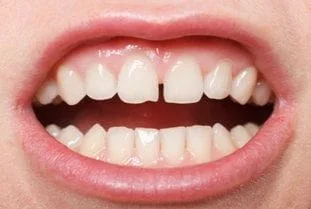
Bonding and Tooth Colored Fillings
Bonding is the process of sticking something to a tooth, usually a tooth colored filling material used either to correct for a cavity or to add to the outside of a tooth to fill a gap or change the size or appearance of a tooth. At our office, we do all these things.
Tooth colored fillings are known as Resin Bonded Composite fillings (RBC’s), or “composites” for short. Gaps between front teeth, cavities or dark stains, or teeth that are worn, broken, or chipped can all be restored to a very natural appearance using composite fillings. With current technology we can expect these fillings to maintain their tooth like appearance for around 10-15 years before we begin to see discoloration, sometimes sooner depending on diet and risk factors like coffee or tea use, or smoking.
Composites are placed by first preparing the tooth surface, then coating the surface with a thin clear bonding resin, and finally applying the composite layer. This is a thick putty that is formed and shaped by hand, and then hardened by bright light. Then it is trimmed to its final shape and polished.
In the U.S. today, composites are the most used method of repairing teeth, being selected slightly more often than mercury amalgam fillings. Many patients ask for composites instead of mercury amalgam fillings on their back teeth primarily because they want their filled teeth to still appear natural. Some ask for them out of concern for the differences they perceive in the effects different fillings can have on their health. Anyone who has studied mercury and health understands that the two are mutually exclusive. Holistic or Biological dentists understand this, and care deeply about protecting their patients’ health.
While composites are indeed much more neutral to your health than mercury amalgam fillings, one concern has been their BPA content. BisPhenol A is a fundamental ingredient of the chemistry of most composites, and presents a health concern due to its links to breast cancer and other disorders. A few dental manufacturers now make composite resins that do not contain BPA, which is what we use in our office.
Holistic dentists are very concerned about what they use to repair or enhance teeth, because these materials become a part of the patient’s body and need to do no harm. These are foreign substances, but they need to blend in, to be accepted by the body and its immune system. This is what biocompatibility is all about, and you can see that there are different levels of this in dentistry.
